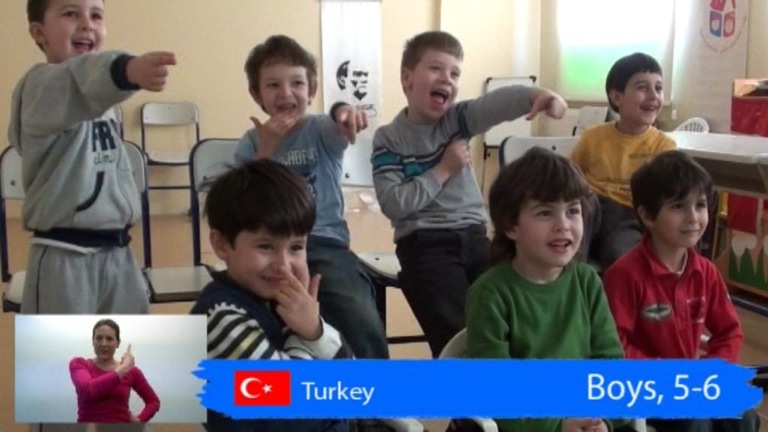Two weeks ago, we began an interview with Dr. Maya Götz, head of both the IZI – a German research institute on children and media, established in 1965 – and PRIX JEUNESSE – the premier international children’s TV festival.
The 50th Anniversary of PRIX JEUNESSE will take place from May 30 – June 4 in Munich (register here), but the joint work of the two organizations goes far deeper and wider than the biennial event. Here, Götz discusses the synergistic collaboration between the competition and the research center.
DK: IZI organizes conferences and workshops for media producers – how did you initially gain their trust, that what you were teaching would be practical to what they need to do?
MG: We try to make it relevant to them. First and foremost, this means taking the professionals’ worldview and needs seriously, then finding a language that addresses and attracts them.
As Confucius said: “Tell me and I’ll forget; show me and I may remember; involve me and I’ll understand.” So, for our producer workshops, we’ve developed some quite effective tools for active, entertaining learning. Usually, the participants’ favorite is “Guessing Games.” We present segments of a show and the audience has to guess the reactions of children from all over the world: do they laugh and, if so, who – only the younger children? only the girls?
DK: What are your favorite examples of children’s TV/media developed with help or insights from your research?
MG: I was involved in the program The Show with the Elephant (produced by the German public broadcasting system) from the very beginning. We did more than four years of all kinds of research, finding the best way to put the latest insights from research on preschool education into a program for 3- to 6-year-olds.
DK: IZI and PRIX JEUNESSE both are global organizations, and you travel often, all over the world, to run workshops. How much is the way you interpret and apply your research influenced by the culture you’re working with?
MG: If we do our craft well, the findings have both general core aspects and some clear cultural bonds. I try to focus on the core aspects, while making sure to mention any cultural particularities specifically.
For me, the question is: which insights in our research can benefit the people I’m encouraging to make quality TV for kids? How can they adopt it in practical ways – or use it as a stepping-stone for some project they want to do?
That means that when I work with a specific country or region, my job is to research their producers’ needs ahead of time, try to understand what resources they already have, and what their special skills are. Finally – usually just the night before each workshop – I put together the content that might open up the biggest learning spaces for them.
DK: When you took over PRIX JEUNESSE, you added a research component – a number of extra elements during the festival week that present research related to the festival theme, or get people thinking about how research can inform program development. What do you have planned for PRIX JEUNESSE 2014?
MG: The PRIX JEUNESSE 2014 theme is “Feelings in Focus.” We will present results on all kinds of emotions – from love and laughter to anger and disgust. We’ll explore how feelings can contribute to the excellence of a show, and also to what extent they may be unfavorable to children’s attraction to the show, or even harmful to the audience’s psyche.
We’re conducting all kinds of studies, starting from comparisons of children’s feelings in 20 different countries to specific questions about what children perceive as funny and scary on TV. We have concrete examples of the importance of music and sound design, and insights into how children all over the world react to different versions of the same segments.
Another aspect will be what role feelings play in the everyday decisions of a program’s editorial staff, and how far it is possible to sensitize and “sharpen” their gut feelings.
The results will be presented in different ways – from five-minute lectures (on anger, fear, love, etc.) to lunchtime scientific presentations of current studies on fear and nightmares from TV, to the Guessing Games twice a day, and an entertaining (I hope!) “Feeling Show” on Sunday night.
DK: This is a very special PRIX JEUNESSE – the 50th anniversary of the festival. What do you have planned for this unique edition of PRIX JEUNESSE that will make it a “must attend”?
MG: First of all, at a gala event on the last day of the festival, we will award four Special Prizes for the best children’s TV programs in PRIX JEUNESSE history – “the best of the best of the last 50 years! We’ll also use the PRIX JEUNESSE archive – with 4,000 quality children’s programs from around the world – as the source for an overview of how quality TV developed in different world regions. This will be done in special “Speed-Dating History” sessions, where children’s media leaders who are also PRIX JEUNESSE habitués will review the aims and concepts of children´s TV in Scandinavia, Europe, Northern America, Asia, Australia and Africa, with emphasis on evolution over time.
Word of the Post: PRIX JEUNESSE. Despite the French name, this children’s television festival, competition and seminar has always taken place at Bayerischer Rundfunk in Munich, every even-numbered year.
At some media competitions, a small jury selects the prizewinners. At others, everyone votes but without shared viewing or conversation. PRIX JEUNESSE is unique, in that everyone attending – producers, writers, executives, academic researchers, educators, and so on – watches and discusses together (age-group screenings are sequential, not simultaneous) and can serve as a juror. The result is an intensive immersion in widely varied creative approaches, followed by deep and challenging formal discussion sessions. For many, though, the true benefit comes in sitting up until all hours of the night with colleagues from every corner of earth, getting inspired with new approaches and perspectives. As Chair of the PRIX JEUNESSE International Advisory Board, but more so as one who’s attended every festival since 1988 (!), I can’t encourage Kidscreen readers strongly enough to attend the festival.





















